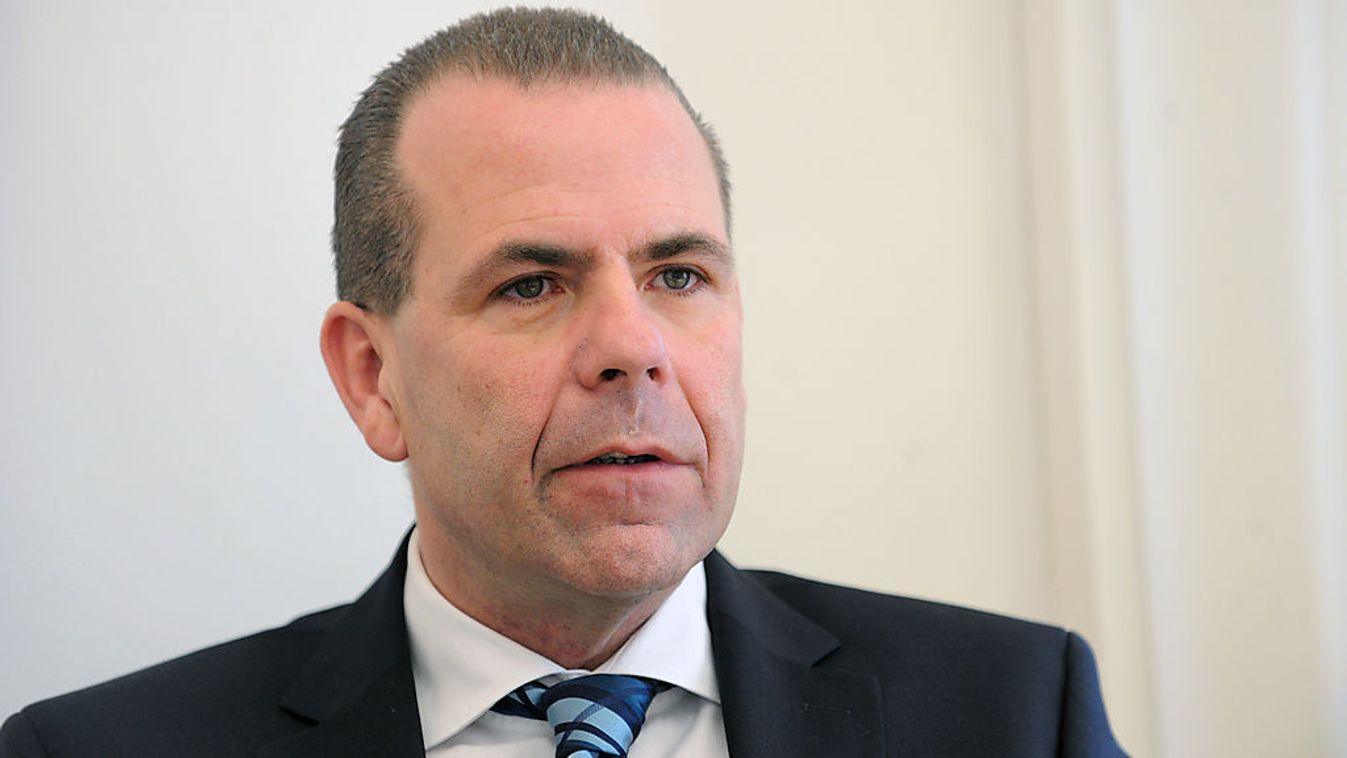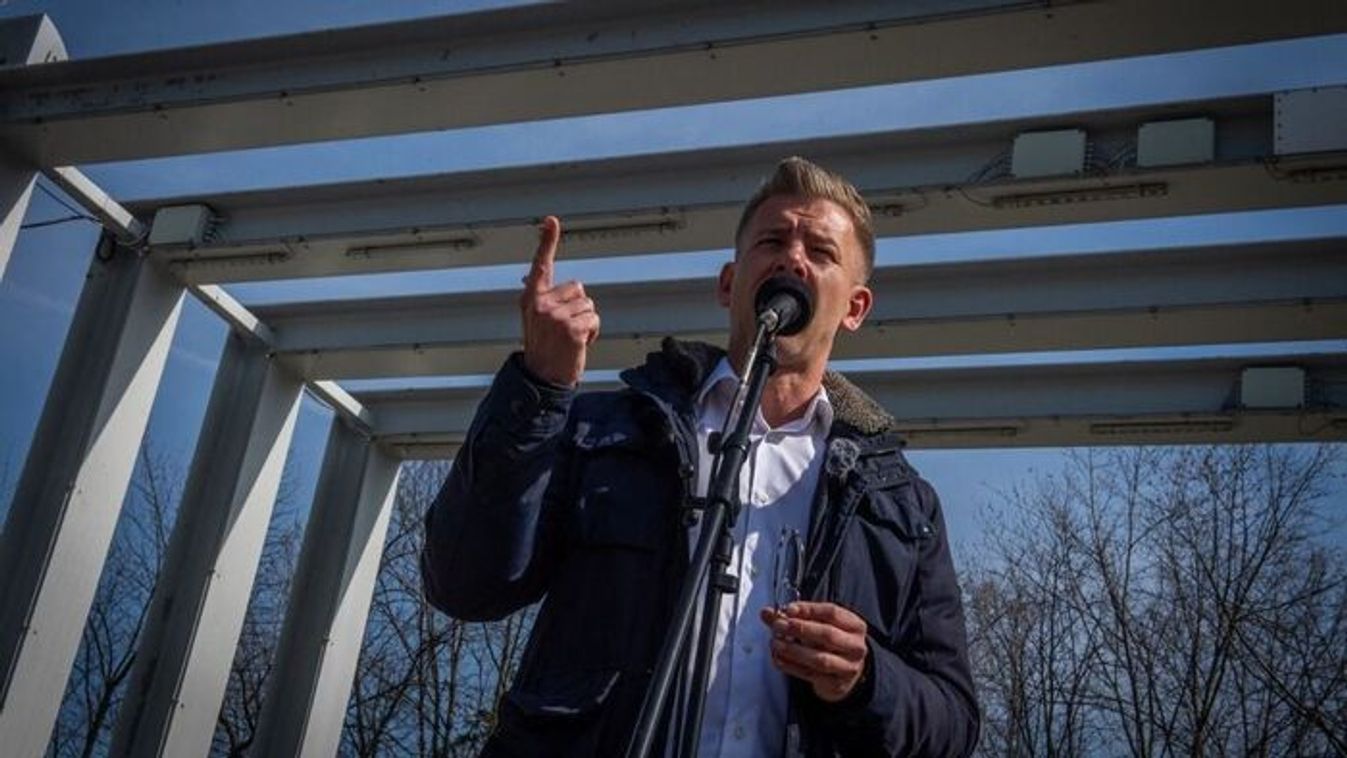Itt a legfrissebb közvélemény-kutatás: így áll most a Fidesz és a Tisza Párt

Továbbra is zajlik a közvélemény-kutatások „háborúja”, utánajártunk, mekkora a valós különbség a Fidesz és a Tisza között.

"Prime Minister Orban is actually doing something that has already been forgotten at the European level: he is acting in the interest of his people" - Harald Vilimsky pointed out in a conversation about the ongoing armed conflict as well as on the future of Europe.

The Ukrainian armed conflict brought war again in Europe that has been unknown since at least the Yugoslavia conflict in the 1990s. There are already some lessons. For example, globalization did not make geography irrelevant, the spheres of influence remained a valid geopolitical concept and the inability of the European cooperation to secure peace on its own continent has become obvious once again. What is the chain of events in your view that led to this devastating war?

The Ukrainian War is one of the avoidable tragedies of European history, because the signs of this war were clearly visible. What the
European political elites have never understood is that this conflict between Ukraine and Russia is a very long one,
starting with the Cossack hetman Jan Mazepa, who joined Charles XII and his Swedes against Peter the Great at the time, or the Holodomor, in which Stalin starved Ukraine and millions of Ukrainians died. Moreover, it was and is just another pawn of the great powers USA and Russia, with Europe, much like in Yugoslavia, taking on the role of the powerless spectator. Two central events were certainly decisive for the current war: The Association Agreement between Ukraine and the EU, which led to the Maidan protests and finally to the secession of Crimea and the so-called People's Republics of Donetsk and Lugansk. In addition, the energy policy of the EU, which on the one hand placed itself in a Russian dependency and on the other hand wanted to take this influence away from the Russians by shutting down gas and oil within the framework of the energy policy agenda, such as the Green Deal.
One striking similarity with the Yugoslavia conflict is that an East-West confrontation has again emerged. Even though Western countries, including especially the United States are not belligerent parties, they have become a central player in the conflict. At the same time, however, the appeal of the United States to rally to forge a “world community” against Russia is weakening. How do you see these phenomena?
An important difference to the Yugoslav war is that firstly, no major power was directly involved as a warring party at that time and secondly, Russia was in a corresponding state of transit from the Soviet Union to the Russian Federation at that time and treated the events in the former Yugoslavia rather very passively. Moreover, the component of the East-West conflict is a much more sensitive one, since the Americans have definitively lost their image of the bona fide liberator who provides peace and freedom in the world through wars such as in Iraq or Afghanistan. Instead, we are witnessing a rupture with those countries that were previously reliable allies but now see the West's geopolitical dominance through Afghanistan, among other things, as a weakness and act with corresponding passesiveness as far as support against Russia is concerned. Accordingly, the USA has not succeeded in forging a broad alliance against Russia, as can be seen in the example of India or some African or South American countries.
The effects of the war are varying from continent to continent and from region to region. What are the effects of this conflict on Europe on its societies and economies?
Generally, I believe that every European is against this war, based on the lessons of the painful European history of the last 100 years - if only for that reason. It must also be clearly underlined that Russia set the ball rolling by invading Ukraine in February. Nevertheless, I believe that the path to a peaceful solution depends on several factors and that the approach at the European level is completely different, even paradoxical.
There are liberal, left-wing and green parties in Europe promoting excessive arms supplies and basically driving a dangerous warmongering that can quickly get out of control,
while at the same time talking about wanting to secure peace in Europe. These parties are in government, especially in Germany. Moreover, precisely this approach is already being questioned by many people who simply want peace again and stability in this regard as well, for example in energy policy. We cannot close our eyes to the fact that a large part of German or Austrian industry and the economy needs gas. The population is particularly worried about this as winter approaches, and I believe that if politicians do not come to their senses quickly, we could be in for big surprises at the next elections. If you look at Austria, for example, just half of Austrians support the EU sanction against Russia. When it comes to arms deliveries to Ukraine, a large majority is against. Therefore, the sanctions policy and especially the current policy towards Russia do not have one hundred percent support among the population and I believe that this support will continue to melt away in view of the upcoming energy crisis.
Instead of Europe, it is Turkey who tries to mediate between the parties. And even though the European Union is not capable of handling the crises, it increasingly became involved in it. It apparently wants to do everything it can to make Russia pay a very high price for its aggression against Ukraine. But what is the price that the European Union and its Member States will have to pay if they definitively alienate Russia? What is your view on this contradiction?
First of all, as an Austrian, I find it shameful that the current federal government has done nothing to act as a peace negotiator. Austria has a long diplomatic tradition and would have been perfect as a location for peace negotiations. Moreover, it could have built up a corresponding reputation as a peace nation. Instead, basically all parties, except the FPÖ, want to bury constitutional neutrality and participate in sabre rattling. As far as relations between Russia and the EU are concerned, I believe that they were already severely damaged before the war and have been destroyed with this war. This has to do with the Russian invasion, of course, but also with the fact that
the EU is increasingly moving into the sphere of influence of US-American interests.
What I would like to see, as an Austrian and also as a European, is for Europe to stop being a pawn in the hands of the powerful and to finally become self-sufficient and look after its own interests and not those of the Russians, Americans or Chinese. If Europe does not manage to free itself from this clasp of third-state interests and does not protect its very own interests, then I do not see a prosperous future for the next generations. Rather, we are building a second Iron Curtain that will make Europe look like a clear loser in the geopolitical game.
Hungary tries to channel a more realistic voice into the European debates on sanction policies and negotiations on cease-fire and the de-escalation of the war. How do you see the approach of the Hungarian Prime Minister?
I find this attitude fundamentally reasonable and would also like to have it from all European heads of government. Prime Minister Orban is actually doing something that has already been forgotten at the European level:
he is acting in the interest of his people.
Our problem at the political level in Europe is the increasing degree of Ideologisation, in the context of political decisions as well. The Ukraine war in particular shows this. The political and media elite of Western Europe is heading blindly towards a catastrophe, but is so convinced of its position and the rightness of it that it is giving up prosperity, freedoms and peace. But the EU is built on these very principles and is thus a guarantee for the unity of the European nations. Viktor Orban has understood this, and he is sending out an appropriate signal. For him, it is not a contradiction to stand up for peace and against the sanctions policy, but nevertheless to help Ukrainian refugees and to send aid supplies to Ukraine. And precisely because many people feel that it is right for a politician to stand up for peace, he is opposed by many governments and media who want to continue on this ideological path.
What are the most important lessons to be learnt for the future of Europe in terms of strategic autonomy?
As already mentioned, I believe that Europe's only way out is to strive for a corresponding strategic autonomy in the sense of a defensive orientation that protects Europe's borders and its interests. I cannot say exactly what this will look like now. I would like to see corresponding cooperation at the level of nation states, in which the interests of neutral nations are also preserved. What I certainly do not find desirable is an EU army that is sent on peace missions to African countries and receives its orders from a supreme commander, Commission President Von der Leyen. Strategic cooperation with NATO should also be reconsidered or ceased. NATO is and remains a guarantor of American interests, just as the Warsaw Pact was a provider of Soviet interests. As Europeans, we must not delude ourselves. I also believe that the United States urgently needs a president like Donald Trump who will play a mediating role rather than a belligerent one, which would be very much in Europe's interest.